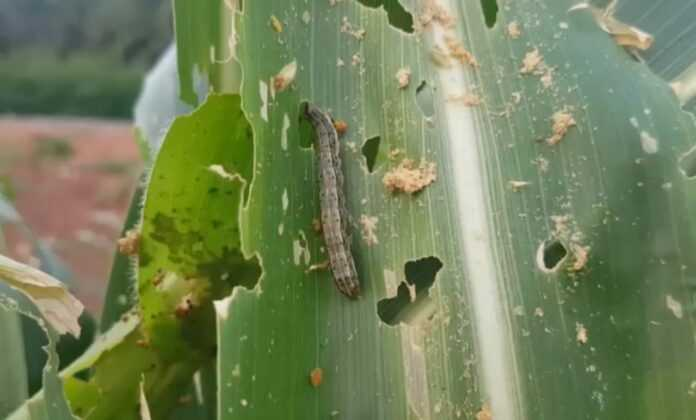Ghana’s inability to produce adequate maize for the animal feed industry has largely been attributed to the infestation of fall armyworm and climate change impact.
The emergence of the pest in the country in 2016, caused the destruction of hundreds of hectares of maize farms, nationwide.
Affected farmers lost their investments. Some were able to bounce back after receiving support from government whilst others had to change from maize farming to other crops to safeguard their livelihood.
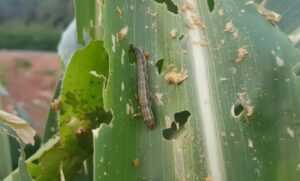
Adam Issah was badly hit in 2020 by the invasion of fall armyworm on his 10-acre maize farm at Afari in the Atwima Nwabiagya Municipality of Ashanti Region.
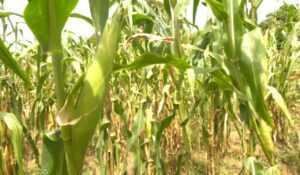
The pests destroyed his farm despite applying different kinds of pesticides to control the destruction.
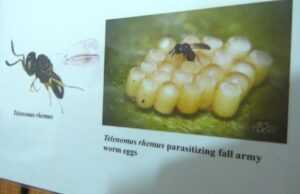
“I invested all my time and applied different chemicals but to no avail. It was just a wasted effort fighting these pests. After cultivating maize twice and losing all to the pest within a year, I had to switch to plantain and vegetable farming to save myself from heartbreak”, he said.
Like Adam, hundreds of farmers have and continue to suffer devastation from the pest raid.
“For some time now, we’ve been struggling to get adequate maize that is able to sustain the economy, primarily because of the fall armyworm and climate change issues but the pest is the major constraint,” a Senior Research Scientist at the Crops Research Institute, Dr Kofi Frimpong indicated.
To control the spread of the pest, the Crops Research Institute of the Council for Scientific and Industrial Research (CRI-CSIR) has come out with an environmentally friendly and effective way of taming the fall armyworm by using ‘pest attack pest’.
“Since 2020 we went through the entire country searching for natural enemies and in fact we identified a lot, but we decided to work on telenomus which is an egg parasitoid. It is an egg parasitoid in the sense that it lays its egg in the egg of the fall armyworm. So instead of the fall armyworm eggs hatching into fall armyworm larvae that destroy the maize, it will rather bring out the natural enemies. And because of that, you are not going to have any larvae coming on the maize. So, because of this, it is going to be efficient in managing the fall armyworm and also, we have the other natural enemies or the bioagents like entomopatogenic fungi and entomopatogenic nemotodes. All these are beneficial insects that fight the fall armyworm”, Dr Kofi Frimpong of CRI explained.

Continuous use of chemicals on the farm is said not to make the pest resistant, but also impact negatively on the environment, thus, the introduction of this natural enemies to attack and kill the fall armyworm.
“Unlike the traditional methods where you apply synthetic insecticide, you need to reapply the insecticide, but when you have the parasitoids in the system and they are not disturbed then it means they are going to be there permanently and will always try to suppress the fall armyworm. The bioagents do not have any negative impact on the environment, the applicator, and also on the crop so it is sustainable”, Professor Moses Brandford Mochaiah, Director of Crops Research Institute added.

CRI has begun educating agriculture extension officers across the country on how to use the new approach to bring down the population of fall armyworm under the Korea-Africa Food and Agriculture Cooperation Initiative (KAFACI) funded project.
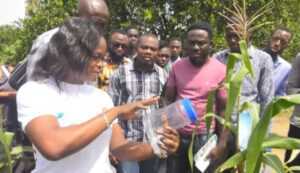
With this, maize farmers are expectant of going about their production activities without any fear.
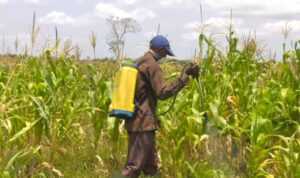
“When this fall armyworm is controlled, the negative impact they have on maize production will be gone and we can get good yield so that livelihood of families will be improved”, Professor Mochiah observed.
3news.com
